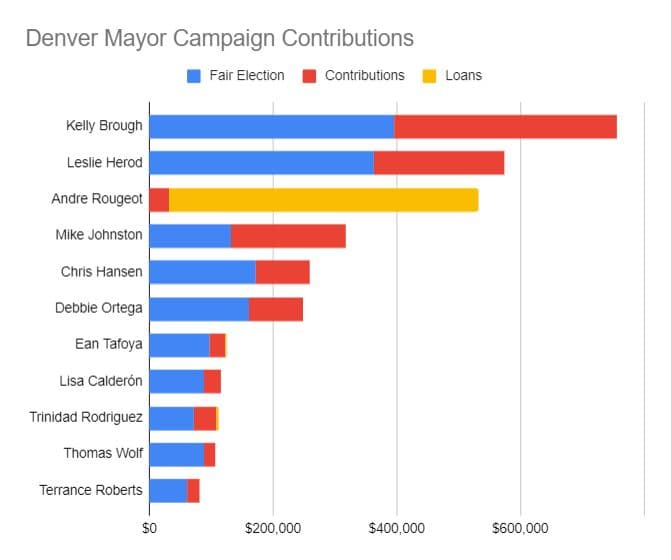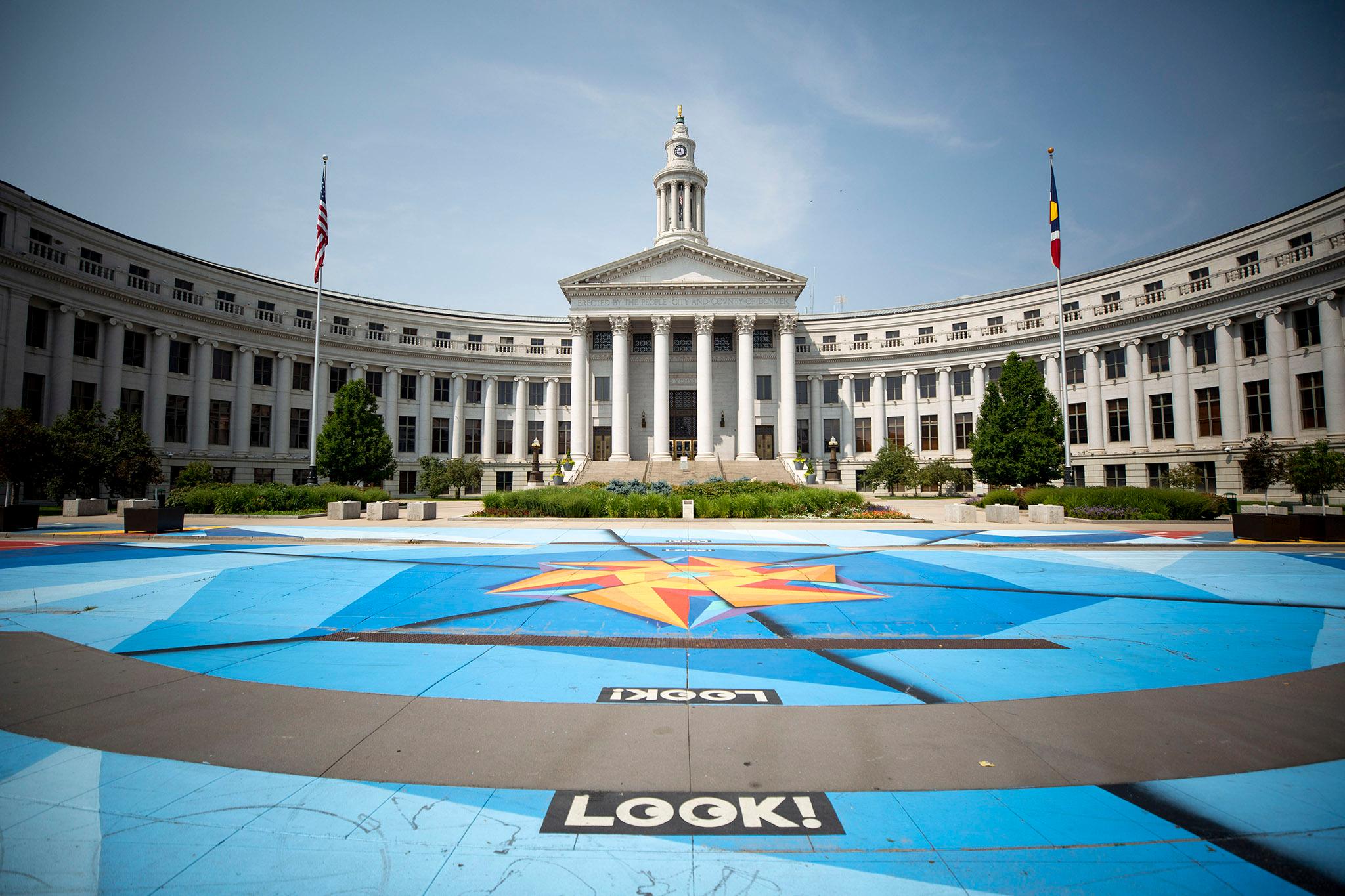Denver taxpayers will contribute an additional $1 million dollars in matching campaign contributions through the city's Fair Elections Fund to a group of mayoral candidates.
Former Denver Chamber CEO Kelly Brough, despite struggling in at least one early poll that was commissioned by a fellow candidate, will get the largest January cut, $259,713.54, bringing her total contributions to $756,963.37. Brough has almost a quarter million dollars more than the next closest candidates, Andy Rougeot (who loaned himself most of his money) and State Rep. Leslie Herod.
Still, Herod has managed to raise lots of direct and Fair Elections Fund contributions, giving her the second most money in the mayor's race to this point, with $576,034.36.
Nine of the 17 mayoral candidates on the ballot will get a Fair Elections Fund January payment. This is the first election with public funding for campaigns, after voters approved a set of reforms in 2018, including matching dollars for qualifying contributions. There is intense competition for a $8 million taxpayer dollars set aside for this election, money that will also go out to qualifying contributions for city council, clerk and auditor races.

Source: Denver Clerk and Recorder's Office
Mike Johnston, who raised more than $5,000 a day during his first 34 days in the race, did not get nearly as much in Fair Election Fund money as others. Johnston received a lot of money from out of state, more than any other candidate in the race so far, but those contributions don't qualify for the taxpayer match. According to city data, only 42% of his total contributions are from the Fair Election Fund, the lowest of any of the top candidates.
State lawmaker Chris Hansen, meanwhile, got a huge boost from Fair Election Fund money. It makes up 66% of his campaign contributions. The taxpayer match allowed him to overtake at-large Councilmember Debbie Ortega for the fifth spot in total contributions.
"It tells you how we're trying to really focus on grassroots donations from Denver. I think that's been a big focus of our campaign, those are our biggest supporters and those are the voters," Hansen said in an interview. "This is $50 at a time, $100 at a time."
Long time activist and former city council staffer Lisa Calderón, who unlike Brough has had relatively good early polling numbers, collected just $115,340.18 in contributions and Fair Election Fund dollars, putting her in 8th place in total contributions, behind environmental activist Ean Tafoya.
"I've gone up against establishment candidates before," Calderón said. "So what I'm most proud of is the fact that we are targeting low donor dollars that are truly representative of Denver voters who are struggling to stay in this city.
"Big money is alive and well in Denver elections," Calderón, who collected 77% of her total contributions from the Fair Election Fund, the largest percentage of the top candidates, said. "On the other hand though, the Fair Elections dollars were meant to help small, progressive grassroots candidates like me, because that's the folks who put that initiative on the ballot. So it also democratized our elections by who could run."
Calderón said she had not yet received the $88,980.48 payment from the city, but was told it is on its way in the mail.
Direct, or "hard money" contributions like this are valuable to campaigns because the candidates have control of how the money is spent.
Curiously, while it's still early in the race, not a lot of money has been spent in ways necessarily visible to voters. There is little in the way of TV ads or mailers or social media so far. But with less than two months until ballots are mailed, campaign watchers expect a deluge, particularly as independent expenditure groups supporting various major candidates start getting involved.













